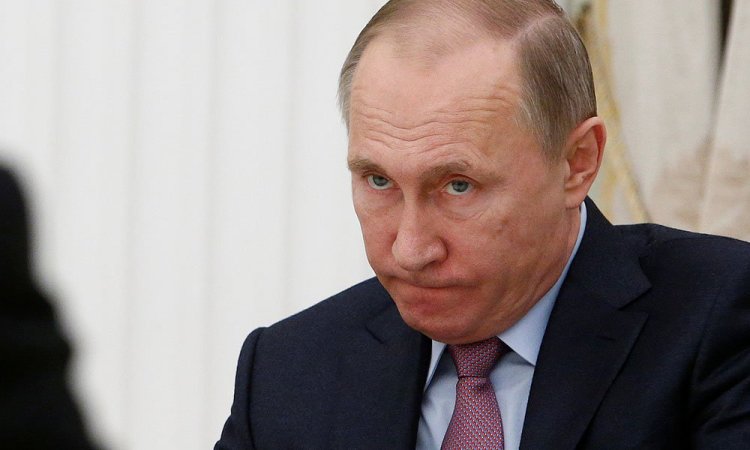On Wednesday, President Donald Trump suggested that the Obama administration had been too soft on Russia.
Trump tweeted: “Crimea was TAKEN by Russia during the Obama Administration. Was Obama too soft on Russia?”
The timing of that observation struck observers as somewhat odd. It came just days after the president’s national security adviser, Michael Flynn, stepped down after potentially illegal contacts with the Russian ambassador to the United States were revealed and his misleading senior Trump administration officials, including Vice President Mike Pence, over the nature of those conversations.
It’s strange, too, because President Barack Obama was tough on Russia. In 2014, the United States and the European Union joined forces to punish Russia for annexing Crimea. At first, those efforts mostly targeted officials. The assets of Russian government leaders in Putin’s inner circle were frozen, at least within the United States, and travel bans were imposed. Included on that list were longtime Putin friend Gennady Timchenko and his former judo partner, Arkady Rotenberg.
Since then, the United States and the E.U. have steadily expanded the restrictions, targeting major businesses and central parts of Russia’s energy, financial and military industries. Russian state banks were forbidden from receiving loans from the E.U. The country could no longer export military equipment or a wide range of oil industry technology. Three major state oil firms were also targeted: Rosneft, Transneft and Gazprom Neft.
Taken together, these policies severely curtailed the amount of money flowing into Russia, and it had an impact. At the time the sanctions were imposed, Russia’s economy was already struggling financially because of the plunging oil prices. According to PBS’s “Frontline,” by January 2015, oil prices has fallen so much that Russia’s total export revenue was expected to drop by a third that year. The financial sanctions made it nearly impossible for the country to mitigate that crisis by borrowing money. On Jan. 9, a credit ratings agency dropped the country’s credit rating to BBB-, one step above junk. It remains there today.
The sanctions made it harder for Russia’s elite to live the life of luxury to which they’d grown accustomed. “A lot of Putin’s billionaire friends can’t travel abroad because they’re under sanctions,” former Guardian Moscow correspondent Luke Harding told NPR’s “Fresh Air.” “I’ve heard that . . . one oligarch [has] been complaining he can’t go to Switzerland anymore where his wine is stored, and he is very unhappy about that. They can’t go skiing in the French Alps or take their yachts to Sardinia. I mean, this is insulting. These are very rich people who can no longer kind of play in some of the world’s most beautiful spaces.” As “Frontline” explained, one oligarch was forced to move back to Russia from Geneva because the sanctions made his life so difficult.
There have been actual hardships too. In the wake of sanctions, the price of everyday goods soared. As The Post reported in 2015, “The price of cabbage has almost doubled in the past year. Pork is up nearly a third, and potatoes a quarter. Late last month, Russia’s biggest grocery chains posted signs in their stores announcing temporary price freezes on key products, but many items are still getting costlier by the week.”
Ironically, though, the sanctions have served the Kremlin in one key way. Researchers agree that Russia’s economy would be in big trouble with or without the sanctions, thanks to dropping oil prices. The West’s restrictions have given Putin a scapegoat. “The main explanation is that the West and America is to blame for everything,” Russian pollster Natalya Zorkaya told The Post.
As a result, Putin remains popular even as people suffer. And two years in, Crimea has not been returned (though experts think the sanctions kept Putin from moving farther into Ukraine).
It’ll be interesting to see where this story goes next. Although Trump has said he’s open to ditching Russian sanctions in exchange for a cut to its nuclear arsenal, it will be hard to him to do that now, with Congress and the media on high alert.
Send questions/comments to the editors.


